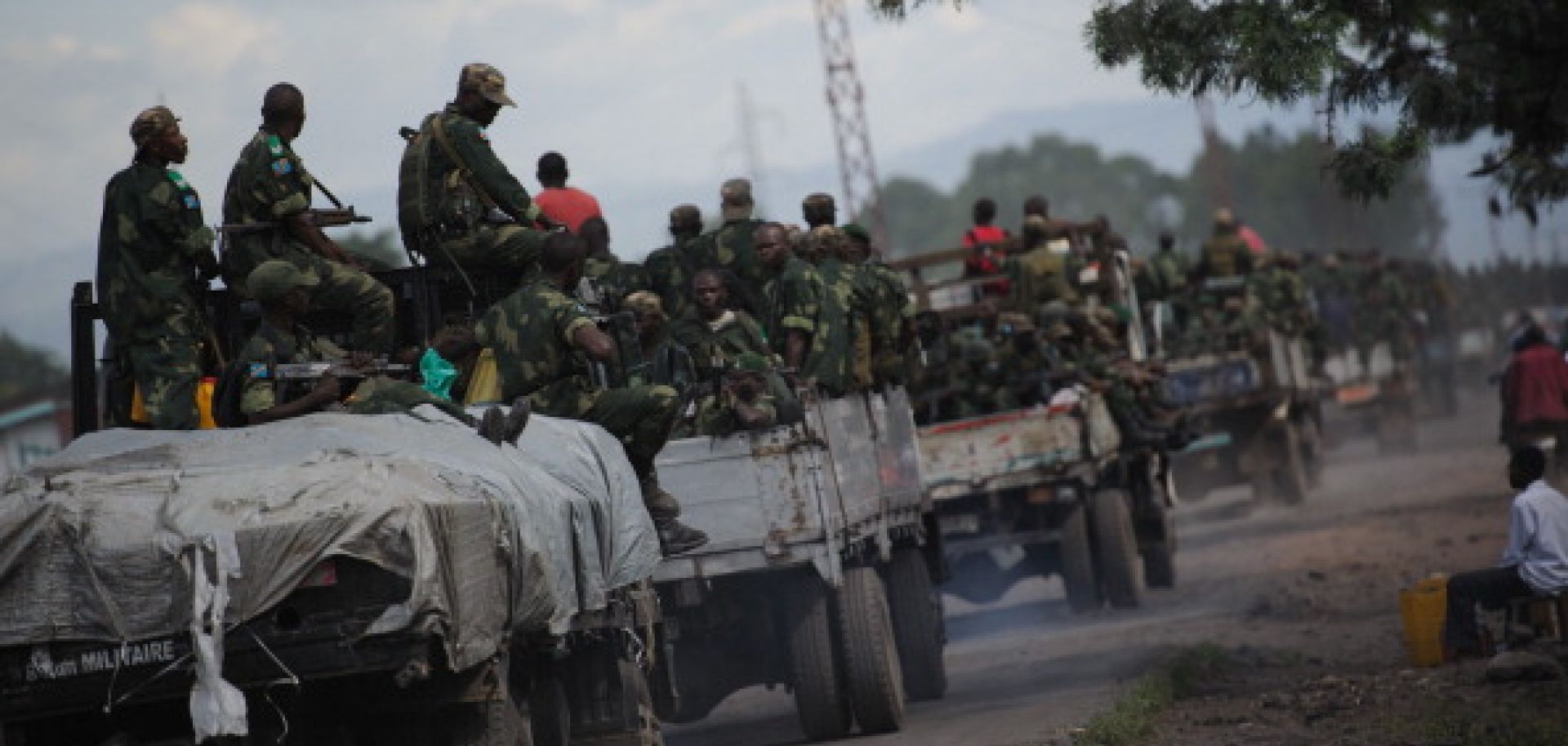ASSESSMENTS
The Effect of Rwandan Policy on Rebels in the Congo
Dec 7, 2012 | 11:47 GMT

PHIL MOORE/AFP/Getty Images
Summary
The M23 rebel group, which has been locked in a standoff with the Congolese military since Nov. 20, is heavily influenced and controlled by Rwanda, but it might not always be. The Rwandan government in Kigali has typically used rebel movements in the Democratic Republic of the Congo to create a buffer against the Congolese military and to contain the exiled Rwandan Hutu militias in the Congo's North and South Kivu states. In the course of Rwanda's support for the (mostly Tutsi) rebels in the Congo, the rebel movements have gone through several iterations, with M23 being merely the latest of these.
With each iteration, the rebels have become fewer, have enjoyed less local support, have had to work with other groups with increasingly divergent goals and, most important, have moved further from Rwandan influence. Should the rebels continue to factionalize, they could become uncontrollable by Rwanda and unresponsive to diplomacy, which could spark a wider regional conflict.
Subscribe Now
SubscribeAlready have an account?
